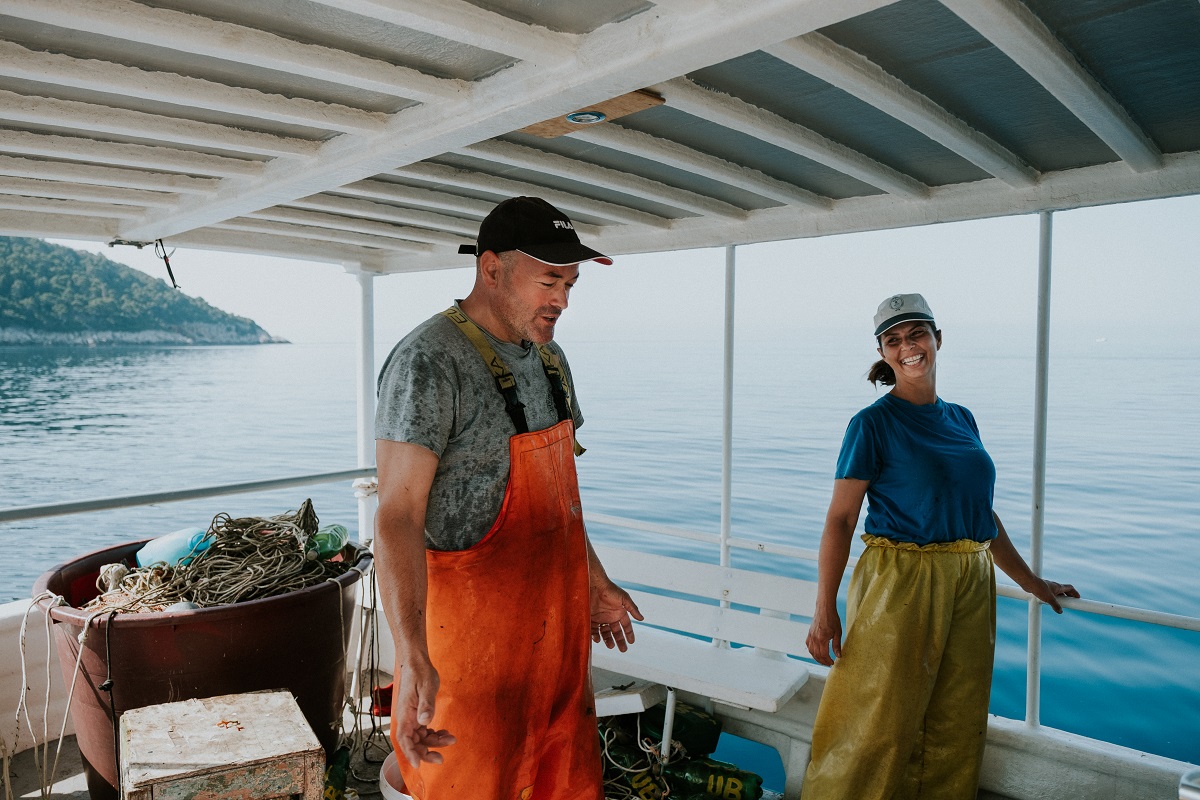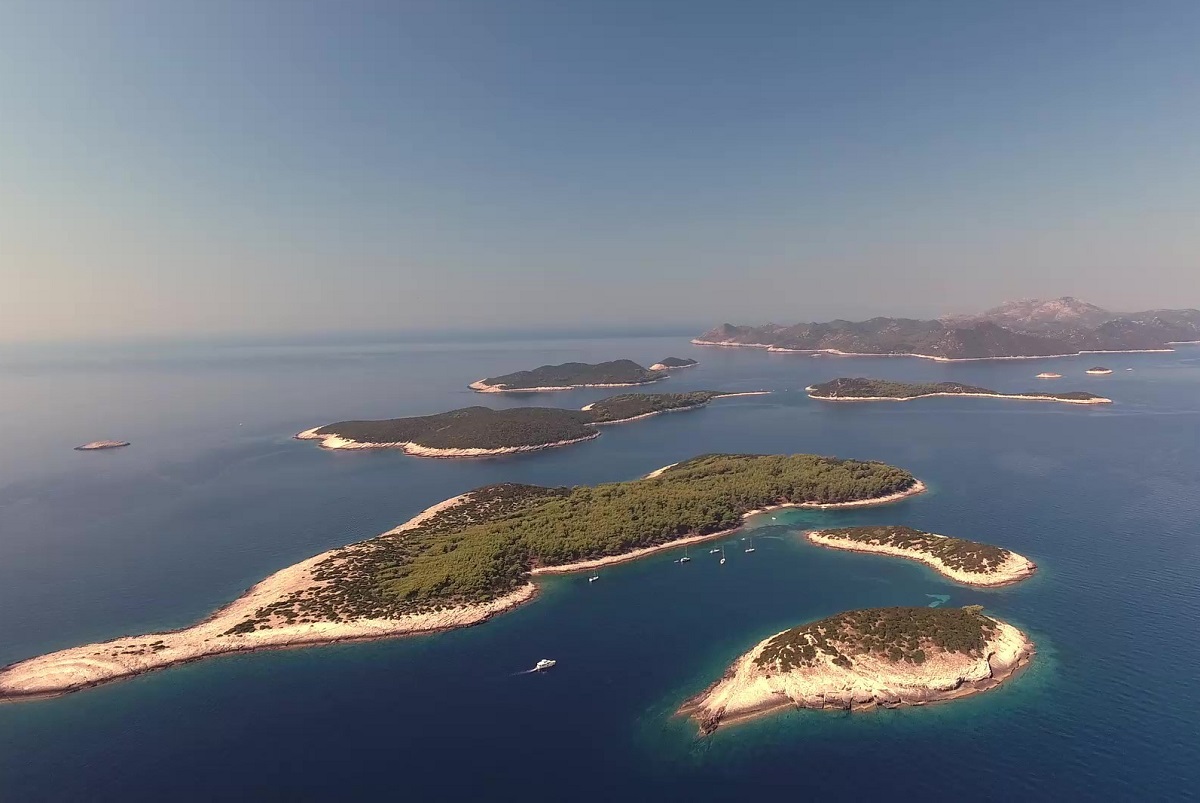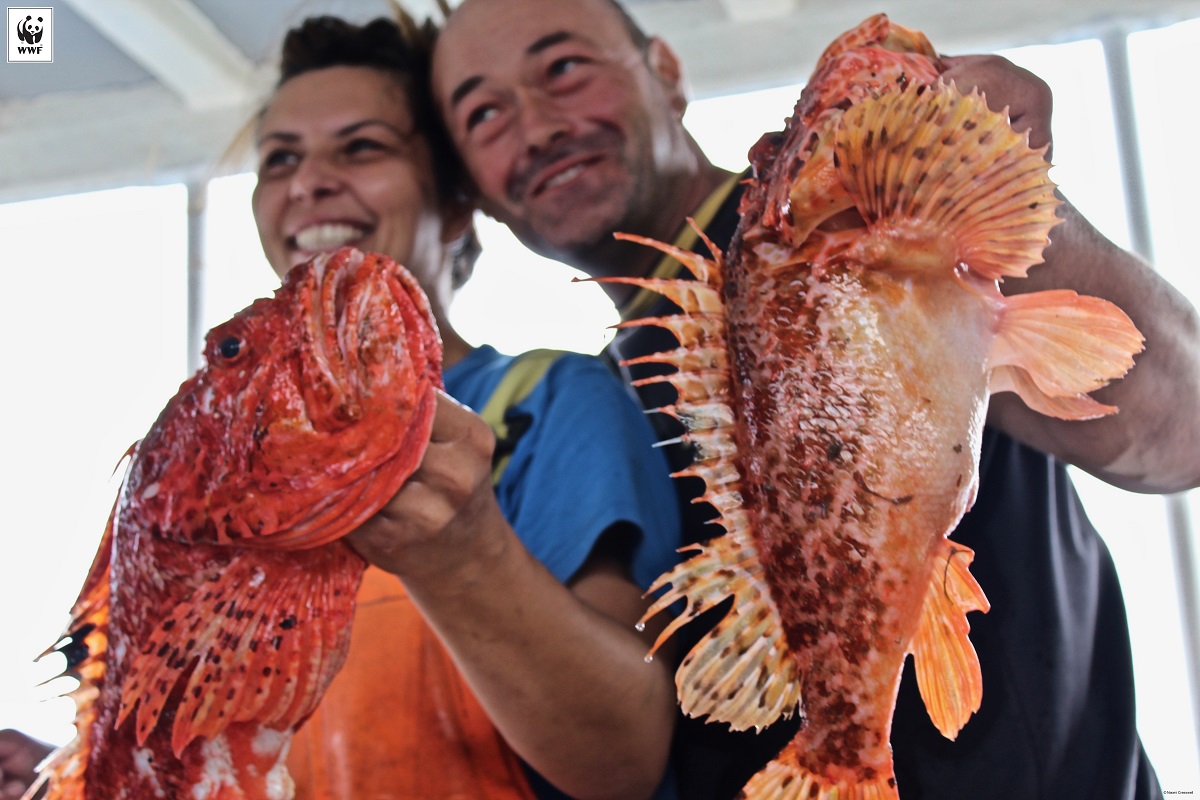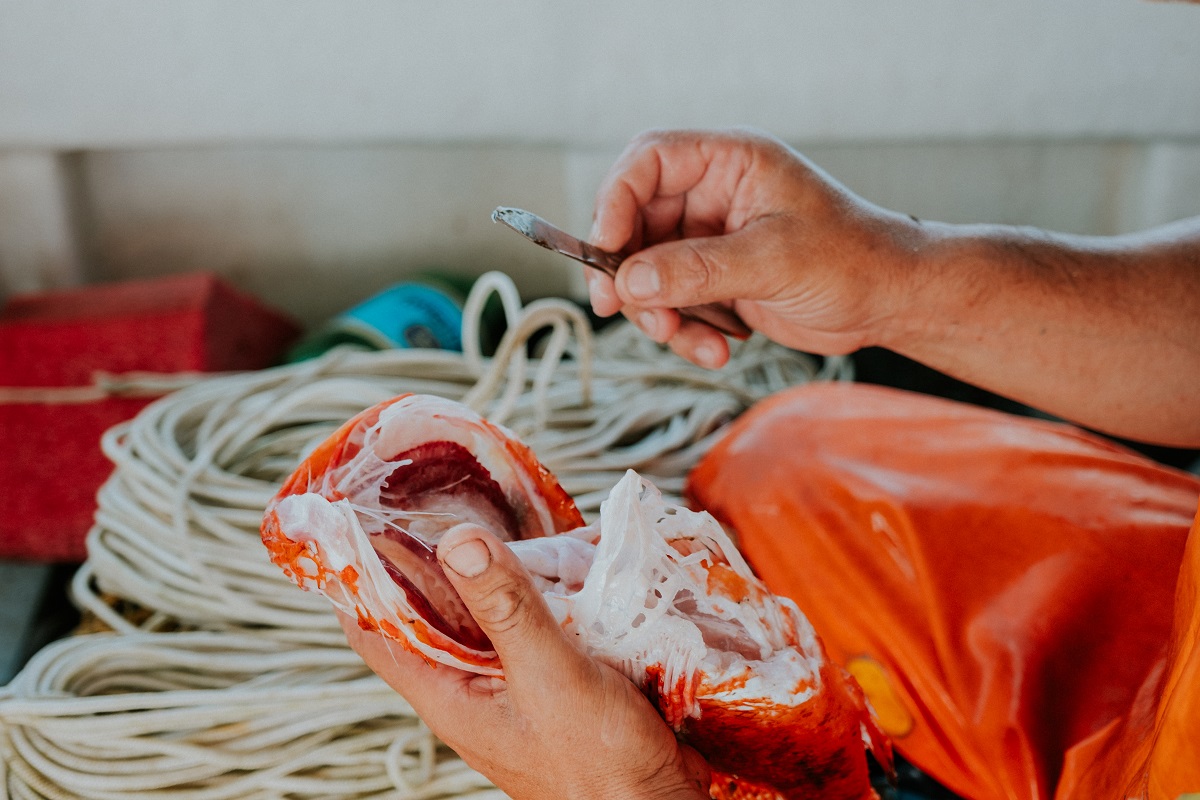Helena and Ivicia
Helena Lešić made her home on the Croatian island Lastovo after following Ivica, a fisherman in heart and soul. As it became harder to earn a decent living as fishers, they knew it was time to search for something else.
Helena Lešić made her home on the Croatian island Lastovo after following Ivica, a fisherman in heart and soul. As it became harder to earn a decent living as fishers, they knew it was time to search for something else. With the support of WWF, this couple initiated fishing tourism by taking travellers on their boat and sharing their knowledge about sustainable fishing. Helena and Ivica share a love for their island, the sea and for each other.
How did you find each other and the island?
Helena: Ivica has lived his entire life on Lastovo, but I was born in Bosnia and Herzegovina. The war brought my family to Split, a city on the coast of southern Croatia. This is where I met Ivica; I followed him to this beautiful island 17 years ago and today I cannot imagine living anyplace else. As a child I loved our family trips to the beach. Now the first thing I do when I wake up is looking at the sea. Love took me to Lastovo, and then I fell in love with the island.
What does the sea mean to you?
Ivica: The sea means everything to me. I am tied to it in every way. This is where I was born, where I am raising my family and where I will die. I started fishing with my grandfather when I was still a child and later became a professional fisherman myself. The sea is our income and our life.

“Many women have an important - though not very visible - role in fisheries.”
Helena: After arriving here, I first worked as a hairdresser. Because things were not going too well I decided to quit my job and started helping Ivica on the boat. Many years ago, Ivica bought an old fishing boat that needed a lot of work to be able to sail properly again. People joked that this project would ruin our marriage, but the opposite happened: I now share his passion for fishing!
There are only a few fisherwomen like me, but many women have an important – though not very visible – role in fisheries. They clean the ropes and nets, salt the fish bites and prepare food for the trips to enable fishermen to do their work. As for me, I just love sailing into the horizon.
Ivica: Living on a small island means that livelihood opportunities are limited. Fishing is an important source of income for the people of Lastovo, but the sea is not doing well. A fisher’s life is difficult even when the sea is healthy; with fewer and fewer fish left our existence is even more challenging. When the amount of fish started to decline, I thought that the number of fishermen would drop. But it didn’t, it increased. The consequences are clear: we need to go further now and still we catch less fish than a few years ago.
“When the amount of fish started to decline, I thought that the number of fishermen would drop. But it didn't, it increased.”

How do you contribute to a healthier sea?
Helena: A crisis makes you more creative, so in order to survive we started thinking about what else we could do. Island life is beautiful, but also limiting in certain ways: you are not in a big city where you have access to almost everything. We had to develop a way to use our knowledge and tools to benefit both the ecosystem and our income. Because some of our friends had asked if they could join us on the boat to learn more about fishing, we realised that other people would possibly be interested in this too. That is how the idea of fishing tourism started.
“By combing fishing with tourism we are able to have sufficient income while catching less fish.”
Ivica: It was not easy to make this change. As fishing tourism was a new phenomenon in Croatia, it was complicated to get the required permissions. In this period, we started working with WWF-Adria. They listened to our problems and together we developed the idea further; we created a tourism product and tested it before launching. WWF and other partners even helped us promote our services – they really were a big support.

By combining fishing with tourism we are able to have sufficient income while catching less fish, and thus taking less out of the sea. The net we use is only 400 meters long, while we used a 2,000 meter net before, and we are not targeting the high-quality fish most fishers catch. These new activities help us and the marine life.
Helena: An Australian traveller told me once that our fishing trip was the best experience she had during her vacation in Europe. Feedback like this makes me very happy, since we put a lot of effort and love into our work. By demonstrating our way of fishing to tourists we share a piece of our lives. Since we show people the entire journey of fish, from the sea to their plates – it reconnects them with nature. During the excursion we also talk about topics like overfishing and sustainable fishing gear, and share ideas and knowledge with the tourists. A delicious fish meal makes the experience complete.

“We show people the entire journey of fish, from the sea to their plates – it reconnects them with nature.”
What other solutions would help?
Ivica: I want the sea surrounding Lastovo to be a place where we fish in a moderate and smart way; we can no longer tolerate exploitation of the sea just to make money. It is a complicated situation that involves everybody: from small-scale fishers to governmental institutions. It is important that the sea and its resources are managed in collaboration with coastal communities.
But it is even more important to influence the government: the system is broken and it urgently needs to be fixed. For that to happen we need more rules on fishing and pollution. Small-scale fishermen can set an example of responsible stewardship. However, it is important that everyone takes responsibility, including large companies.
We need more strict and precise rules on who is and who is not allowed to fish and against pollution. Co-management can work and small-scale fishers could be an example of responsible stewardship but we also need to be careful: while small-scale fishers are trying to adapt, big players are still overexploiting what is left at sea.
“It is important that the sea and its resources are managed in collaboration with coastal communities. But it is even more important to influence the government: the system is broken and urgently needs to be fixed.”
Helena: As small-scale fishers we have to be an example of responsible stewardship. For example: if you catch small fish, throw them back into the sea. Give fish a chance to fully grow and the sea will reward you. If we treat our resources with respect we have a chance to witness an abundance of marine life again.
Credit header photo: Naomi Creswell